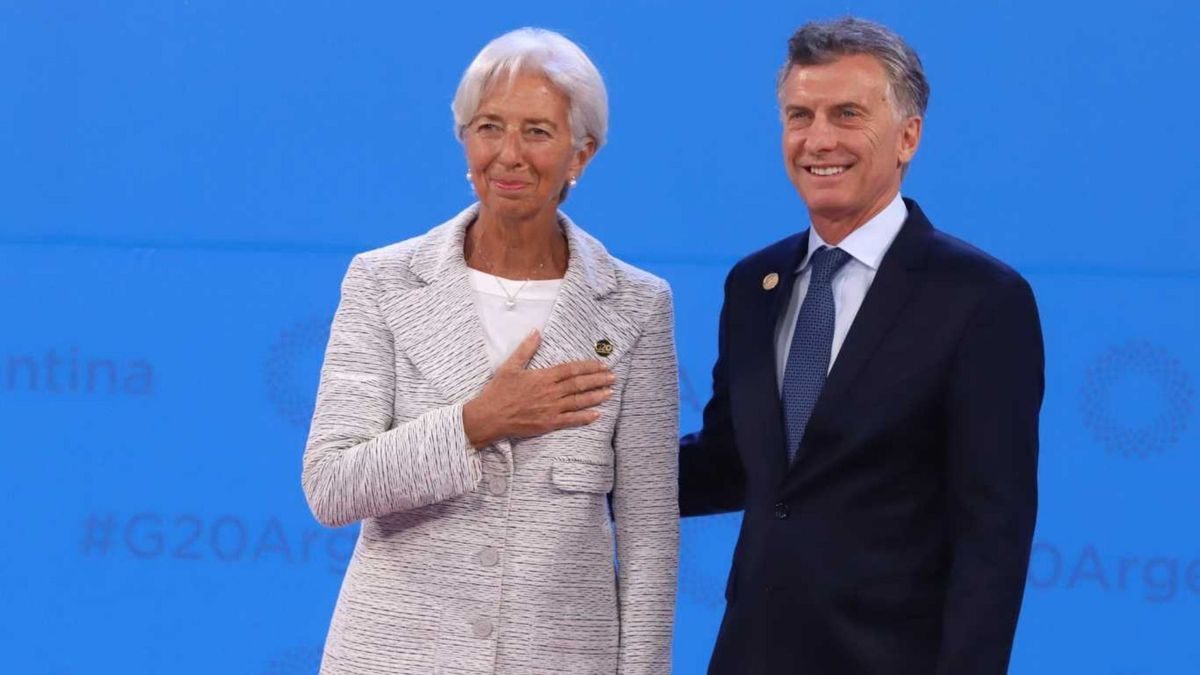The IMF Executive Board analyzes the ex post evaluation of Argentina’s exceptional access under the 2018 Stand-By Agreement
December 22, 2021
Washington, DC : The Executive Board of the International Monetary Fund (IMF) met today to discuss the Ex-Post Evaluation (EPE) of Argentina’s Exceptional Access under the 2018 Stand-By Agreement.
An ex post evaluation is required in all cases of IMF loans above normal borrowing limits to review performance against original program objectives, discuss whether the program design was appropriate, and assess whether the program was consistent with the policies of the Fund. This SOE reviews the experience under the Argentina program, supported by the Stand-By Agreement, and covers the period from June 2018 to August 2019. It examines the weaknesses and vulnerabilities of the Argentine economy, the objectives and policies of the program, the financing balance and adjustment, and the justifications for Argentina’s exceptional access to IMF financing. The EPE also includes an appendix that sets out the authorities’ reaction to the report and opinions on the 2018 Stand-By Agreement.
At the beginning of 2018, Argentina, like other emerging market economies, was experiencing difficult external financing conditions. The government announced in May 2018 that it would seek an agreement with the IMF. In support of the economic program, the Executive Board approved in June 2018 the largest reserve agreement in the history of the Fund. After an increase in October 2018, access under the agreement amounted to $ 57 billion (1,227 percent of Argentina’s IMF quota).
The program aimed to restore confidence, reduce balance of payments and fiscal imbalances, and reduce inflation. Restoring confidence, in turn, would give the authorities time to re-address the longer-term challenges facing the Argentine economy. The strategy, backed by strong financial support from the Fund, focused on fiscal and monetary tightening, combined with targeted structural reforms, to catalyze new capital inflows. The program also included specific measures to support vulnerable segments of the population and address gender inequality.
The ex post evaluation report concludes that the relevant Fund policies and procedures were followed, including those related to financing, safeguards and program design. The report also concludes that the program did not meet its objectives, despite significant changes in economic policies. Increased repayments, coupled with capital flight from residents, put considerable pressure on the exchange rate. Despite exchange rate interventions beyond the provisions of the program, the exchange rate continued to depreciate, increasing inflation and the peso value of public debt, and weakening real incomes, especially of the poor. In summary, the report concludes that the program did not meet the objectives of restoring confidence in fiscal and external viability and, at the same time, fostering economic growth. The program came off course in August 2019 and the Executive Board only completed four of the twelve planned reviews. Authorities decided to cancel the deal on July 24, 2020.
Executive Board Assessment [1]
The Executive Directors welcomed the comprehensive ex-post evaluation (EPE) of the Fund’s exceptional access to financing under the 2018 Stand-By Agreement (SBA) with Argentina. While the EPE draws a number of important lessons, they noted that several of them are not new. Going forward, the directors emphasized that the EPE’s findings should inform ongoing discussions about a possible follow-up program with Argentina.
Directors regretted that the 2018 program did not meet its objectives of restoring market confidence, reducing external and fiscal imbalances, reducing inflation and protecting the most vulnerable segments of the population. They considered that the program’s strategy and conditionality were not strong enough to address Argentina’s deep-rooted structural problems, including fragile public finances, dollarization, high inflation, weak monetary policy transmission, a small domestic financial sector. and a narrow export base.
Directors noted that then-government red lines on certain policies may have ruled out potentially critical measures for the program. These measures include a debt operation and the use of capital flow management measures. However, several directors questioned the feasibility of implementing these measures when a key objective of the program was to restore market confidence. Directors acknowledged that the emphasis on government ownership may also have led to overly optimistic forecasts, weakening the robustness of the program.
Directors noted that the SBA has created substantial financial and reputational risks for the Fund. Most Directors agreed that agreeing with the authorities in advance on contingency plans could have reduced risks to the program and the Fund, but some Directors noted the difficulties of managing such plans in practice given the sensitivity of the market. Directors emphasized that better communication by authorities could have boosted the catalytic effect of the program. They also underscored that a greater burden-sharing with other official creditors would have provided additional funding and pointed to broader support from the international community, which could have strengthened confidence.
Directors generally agreed that the SBA was consistent with the Fund’s policies and procedures, but recognized that the application of some of these policies involved considerable judgment. However, some directors questioned that consistency. While standard procedures were followed to assess risks to the Fund, the Directors considered that the broader risks could have appeared more prominently, and the Board could have been involved earlier and more deeply in the process. Many Directors considered that an evaluation of the SBA 2018 with Argentina by the Independent Evaluation Office could complement EPE’s findings. Although the revised Exceptional Access Framework was followed, they noted that the application of the criteria on debt sustainability, market access,
Directors highlighted several lessons for programs supported by the Fund. First, it is essential that they incorporate realistic assumptions. Second, programs must be tailored to country circumstances, including political economy considerations, which could involve the use of unconventional measures if standard macroeconomic policies are unlikely to work. Third, the analysis of the risks underlying the key judgments made when applying the Exceptional Access Framework must be clearly presented and communicated to the Board. Fourth, ownership, to be understood in a broader social sense, should not prevent an honest assessment of possible best policy options and program outcomes. Fifth, Effective external communication is essential to ensure proper buy-in at different levels and the desired catalytic effect. Finally, proper burden sharing is required when entering into exceptional access agreements.
[1] At the conclusion of the discussion, the Managing Director, as Chairman of the Board, summarizes the opinions of the Executive Directors and this summary is transmitted to the authorities of the country. You can find an explanation of the qualifiers used in summaries here: http://www.IMF.org/external/np/sec/misc/qualifiers.htm.
Text in English: https://www.imf.org/en/News/Articles/2021/12/22/pr21401-argentina
Source From: Ambito
David William is a talented author who has made a name for himself in the world of writing. He is a professional author who writes on a wide range of topics, from general interest to opinion news. David is currently working as a writer at 24 hours worlds where he brings his unique perspective and in-depth research to his articles, making them both informative and engaging.




